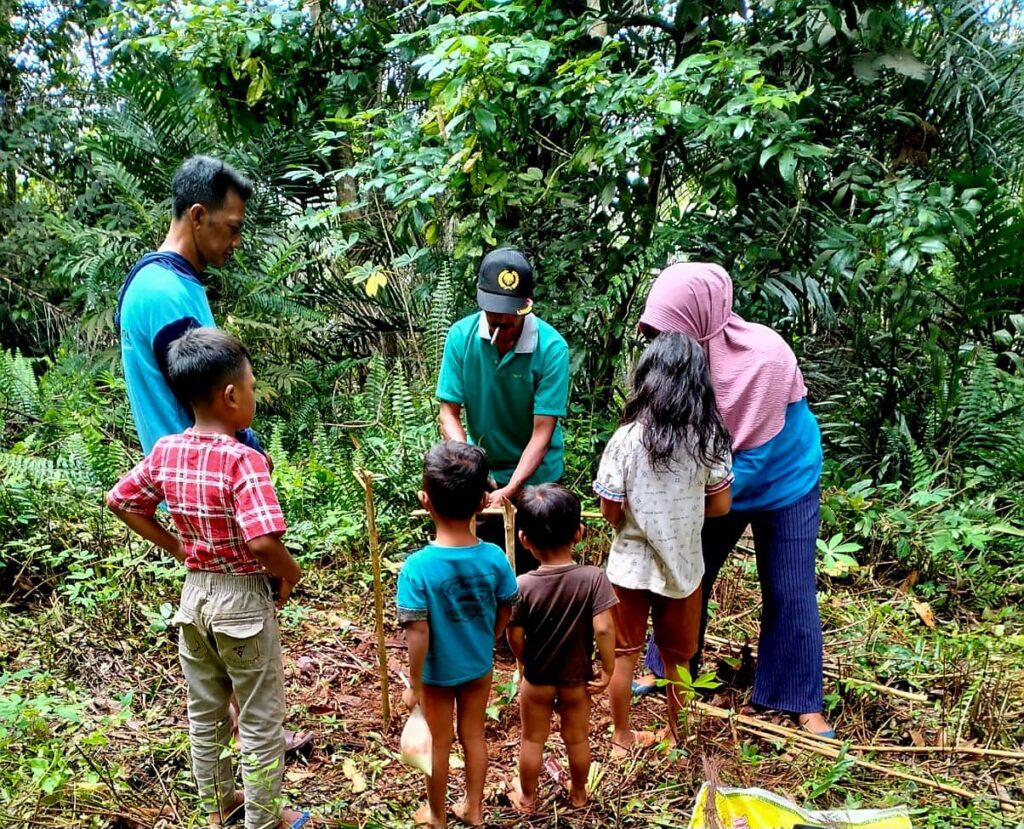The main goal of the Sustainable Agriculture Revitalization Program (SARP) was to help Indigenous SAD communities. It did this by teaching them and supporting small-scale farming methods. The program aimed to improve food security in Jambi while encouraging sustainable farming and protecting the culture of these communities.
In the past, Indigenous SAD communities lived by hunting animals and gathering plants from the forest to meet their needs, rather than practicing settled farming. Their way of life was deeply connected to the forest, which provided everything they needed for survival. However, over time, outside forces disrupted this way of life. One major issue was being forced to leave their ancestral lands, which not only removed them from the forest but also made it difficult for them to pass down their traditional knowledge to future generations.
This loss of connection to their land and traditions led to a decline in their understanding of farming practices, which were already limited due to their focus on hunting and gathering. The forced displacement also weakened their cultural identity and community bonds, making it harder for them to adapt to new challenges. As a result, they began to lose both their indigenous agricultural knowledge and their cultural practices, leaving their communities in a vulnerable position.

In response to these problems, DEEP EnGender worked diligently to bring back small-scale farming to help Indigenous SAD communities. The goal was to reconnect them with farming, which could provide a steady source of food and improve food security in Jambi. These efforts focused on addressing the loss of traditional knowledge and the challenges caused by displacement and cultural changes.
SARP played a key role by offering targeted support, education, and farming tools. The program worked to teach the communities simple but effective farming methods that could be easily adopted. This not only helped improve their daily lives by providing more reliable food sources but also supported their independence and ability to take care of their families.
Date: 2-3 March, 2024
